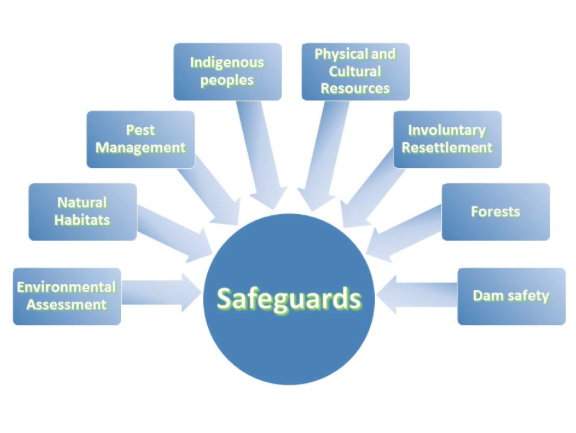 Anyone following the ongoing update to the World Bank’s environmental and social safeguard policies (safeguard policies) would do well to read the 12 December 2014 letter to Bank president Jim Yong Kim from the special procedures mandate-holders of the United Nations Human Rights Council (special procedures). According to the special procedures, contrary to President Kim’s repeated reassurances, the draft Environmental and Social Framework (ESF) is a dilution of the safeguard policies they are supposed to replace.
Anyone following the ongoing update to the World Bank’s environmental and social safeguard policies (safeguard policies) would do well to read the 12 December 2014 letter to Bank president Jim Yong Kim from the special procedures mandate-holders of the United Nations Human Rights Council (special procedures). According to the special procedures, contrary to President Kim’s repeated reassurances, the draft Environmental and Social Framework (ESF) is a dilution of the safeguard policies they are supposed to replace.While the special procedures address several issues, they make three critical points:
First, the special procedures note that while the international community has accepted that development must respect human rights, the Bank is “an increasingly isolated outlier” in failing to commit to human rights requirements in the draft ESF. Second, they refute the Bank’s oft-repeated claim that taking human rights considerations seriously will put the Bank at a competitive disadvantage. Not only does the Bank’s view accelerate a race to the bottom, it is also irrelevant given that human rights are a matter of legal obligation. This relates to the special procedures’ third point, which is that not only is the Bank bound by international law; so too are the Bank’s 188 member states, all of which have ratified at least one of the core international human rights treaties. The Bank has a “due diligence responsibility” not to be complicit in states’ violations of their human rights obligations.
The letter also includes an annex which provides further analysis of the draft ESF. The bottom line according to the special procedures is that the draft Environmental and Social Standards (ESS) which make up part of the draft ESF fail to comply with international human rights law. As an example of this failure, the special procedures point to the Indigenous Peoples policy (ESS7) which through “the ‘opt-out’ clause in paragraph 9 undermines the fundamental premise on which the Declaration [on the Rights of Indigenous Peoples] is framed.”
The special procedures conclude their letter by informing President Kim that they will make his response available in a report to the Human Rights Council. Will the Bank respond by taking the special procedures’ direct but necessary criticisms of the draft ESF to heart? Or will it continue to circle the wagons and insist that the draft ESF adequately protects the human rights of people impacted by projects the Bank is involved in?
For further reading see pieces by Oxfam and the Huffington Post regarding the special procedures’ letter.
